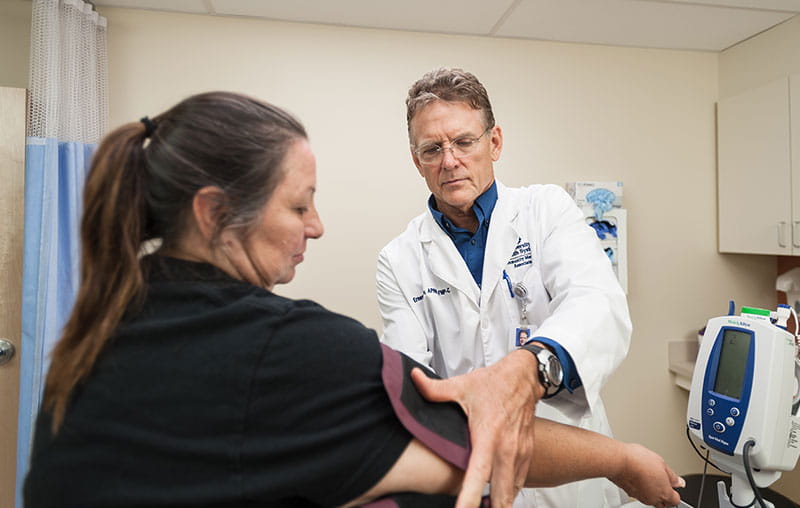Caring for the caregiver: 10 tips for staying strong
If a loved one has had a serious illness, the time spent with them can seem precious. Staying bedside, or beside them, at all times may seem critical. Family members who care for others recovering from a stroke, cancer, heart attacks or a traumatic injury, or those caring for relatives with Alzheimer or Parkinson’s, run the risk of caring too much for others and not enough for themselves.
Unpaid family caregivers and friends provide 85% of all home care in the United States, according to the Alamo Area Council of Governments.
“You have to take care of you because if you don’t take care of you, you can’t take care of your loved one,” says Janet Deitiker Tracy, University Health chaplain, and Coordinator of Patient Experience, Spiritual Care. “You have to think about the long haul. You have to pace yourself and care for yourself so you can remain strong, long-term.”
Take a break: respite care for you
Tracy reminds caregivers that the healing process isn’t all about the person who is ill. It is also about you, the caregiver. It is fine to ask a loved one relieve you. Everyone needs a break.
It isn’t always easy to take a break, but it is essential for you to maintain your own health and mental well being. Here are University Health's top ten tips to care for the caregiver:
- Take a minute and go outside each day. The outdoors will improve your mood. Get some fresh air or sunshine.
- Call a chaplain or a friend. It is okay to relieve stress by talking through your concerns and thoughts.
- Bring something creative to work on while you sit at the bedside. It is harder to dwell on the illness if you are knitting, scrapbooking, quilting, writing or sketching.
- Stay in touch with the activities that are important to you. Go to church. Go shopping. Take walks. Exercise. Garden. Keep a tether to your normal life.
- Find an escape and visit. It might be a garden, the chapel or a piece of artwork that offers you space and clarity of mind. Or watch Judge Judy or HGTV to take a mental break.
- It is okay to give yourself a day off. Reach out to organizations such as the Area Agencies on Aging to find caregiver support and qualified caregivers to watch over your loved one at home.
- Don’t be afraid to ask. It takes a whole village to care for someone with a chronic illness or a traumatic injury. Ask a friend to pick up groceries or sit with your loved one so you can attend a meeting or go to church.
- Do not neglect your own health. Go to your own doctor and dental appointments. Make time to exercise. Eat proper meals. You are equally important as the person who is ill.
- Talk to the social workers; ideally before you leave the hospital. These professionals can connect you to multiple organizations and resources for assistance. There’s help out there, and social workers are trained to help you connect.
- Stay engaged in your life. Don’t make your circle smaller. Stay in touch with family and friends, even if it is only through social media or email.
Still, feel like you need help? Sign up for UT Health San Antonio’s UTCaregivers.org classes to help you learn best practices for caring for your loved one.




